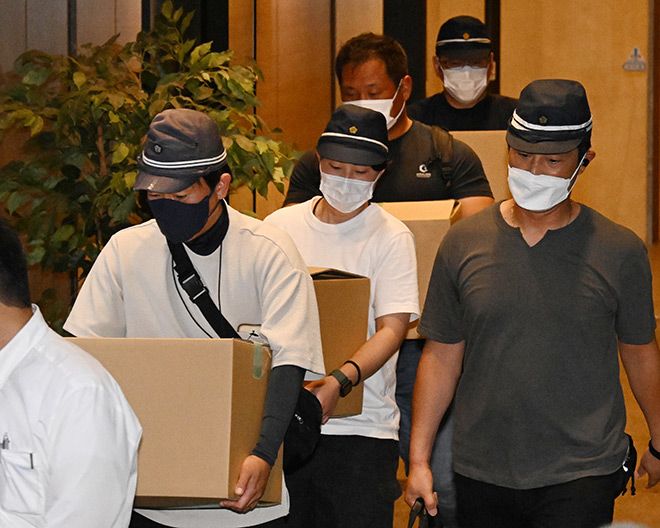
OSAKA—In a massive crackdown on fraud, Osaka prefectural police have arrested a total of 90 people for scams that offered fictitious investment opportunities and bilked victims out of cash.
Osaka police on July 23 arrested eight people on fraud charges.
On July 24, police arrested an additional 82 people on fraud and attempted fraud charges.
The prefectural police have seized about 1,800 smartphones and manuals, uncovering the detailed operations of criminal groups. More arrests are expected to be made, police said.
According to police, these 90 suspects are between the ages of 19 and 45, and they belong to two groups.
Most are believed to have been based in one of four buildings in Osaka and sent out messages via social networking sites to victims.
Since these two groups used a similar scheme, police believe they are connected.
Police said members of the two groups impersonated investment advisers via social networking sites between February and July this year.
They are accused of defrauding victims out of cash in the form of instruction fees and the purchase of trading materials for “binary option” trading, in which investors predict the rise and the fall of exchange rates.
Police said each member followed or sent messages to an unspecified number of people, including men and women from their teens to 40-somethings.
They typically posed as a young woman on social networking sites, calling themselves “Emi” or “Rika.” They posted images of brand-name products and food on these sites, creating the belief that they were making profits on their investments.
If people responded, they individually offered them an investment deal.
They also invited their friends and acquaintances to join them to increase the memberships of the groups.
Police believe that the total amount of damages exceeded 900 million yen ($5.9 million).
Police searched four buildings in Osaka, which are believed to be the groups’ base of operations. About 470 investigators were involved in the bust that was conducted on an unprecedented scale, police said.
Police said these groups rented two to five rooms in each building, and in each room, about 20 members offered false investment opportunities through social networking sites.
(This article was written by Rikako Takai, Tomoki Miyasaka and Hiyoruki Kojima.)
This post was originally published on this site be sure to check out more of their content







